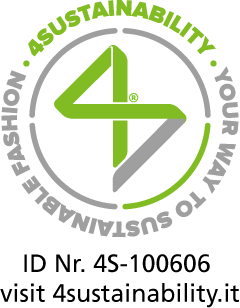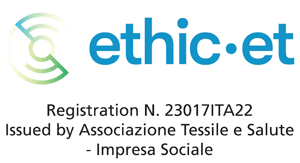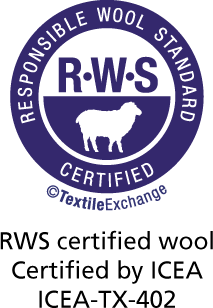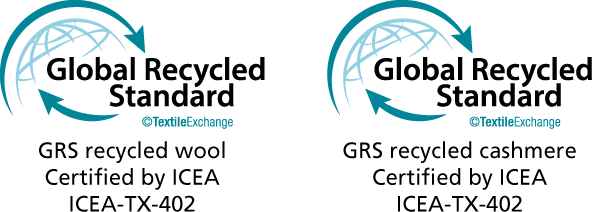

4sustainability® is an implementation system designed to transparently measure and communicate to the market the sustainability performance of the fashion and luxury ID Nr. 4S-100606 supply chain.
Transparency and Sustainability Policy Review Planet Protocol SUPPLIER TO ZERO certificate

Tessile e Salute protects Made In Italy products, ensuring that the Papi Fabio yarns are safe for human health thanks to the non-toxicity of the chemicals used throughout the production process.

Filatura Papi Fabio has always adhered to the Detox project, promoted by Green Peace in collaboration with the Prato Industrial Union. At the end of its course it will provide for the total abolition of n. 11 categories of chemicals harmful to humans and the environment.

This certification promoted by the Chamber of Commerce is in defense and promotion of Made in Italy. Filatura Papi Fabio boasts the certificate n. 0011.

Certification issued by the Textile Exchange which guarantees the complete traceability of the wool fibers contained in our yarns, along the entire supply chain, from the farmer to the finished product to the final consumer.
A wide range of yarns from our collections contain "NO MULESING" wools. This certification is guaranteed, upon request, by our Supplier.
The cashmere fibers and the very fine virgin wool used by Filatura Papi Fabio are free of chemicals containing APEO / NPEO that can contaminate water resources and its fauna.
It is a European Union regulation that aims to ensure the safe use of chemicals. Filatura Papi Fabio meets all the requirements relating to the provisions.

The cashmere used by Filatura Papi Fabio also comes from breeders who are members of the Committee for the certification of the sustainability of cashmere fiber from Mongolia.

Sensitive to the protection of the planet and mankind, Filatura Papi Fabio uses pre and post consumer recycled fibers, certified GRS (Global Recycle Standard) with low environmental impact, with evident energy savings of water and CO2 emissions.
Filatura Papi Fabio has a sophisticated technology that allows it to reuse the noblest part of the fibers discarded during processing. Unusable fibers are sold to companies which in turn use them for other noble purposes, thus activating an effective circular economy.
